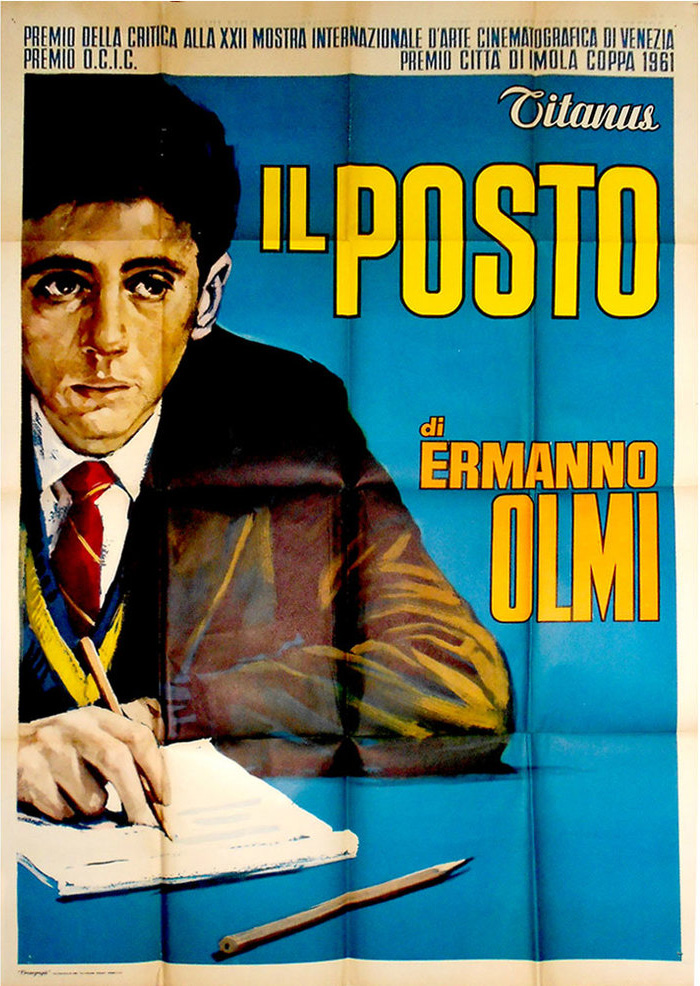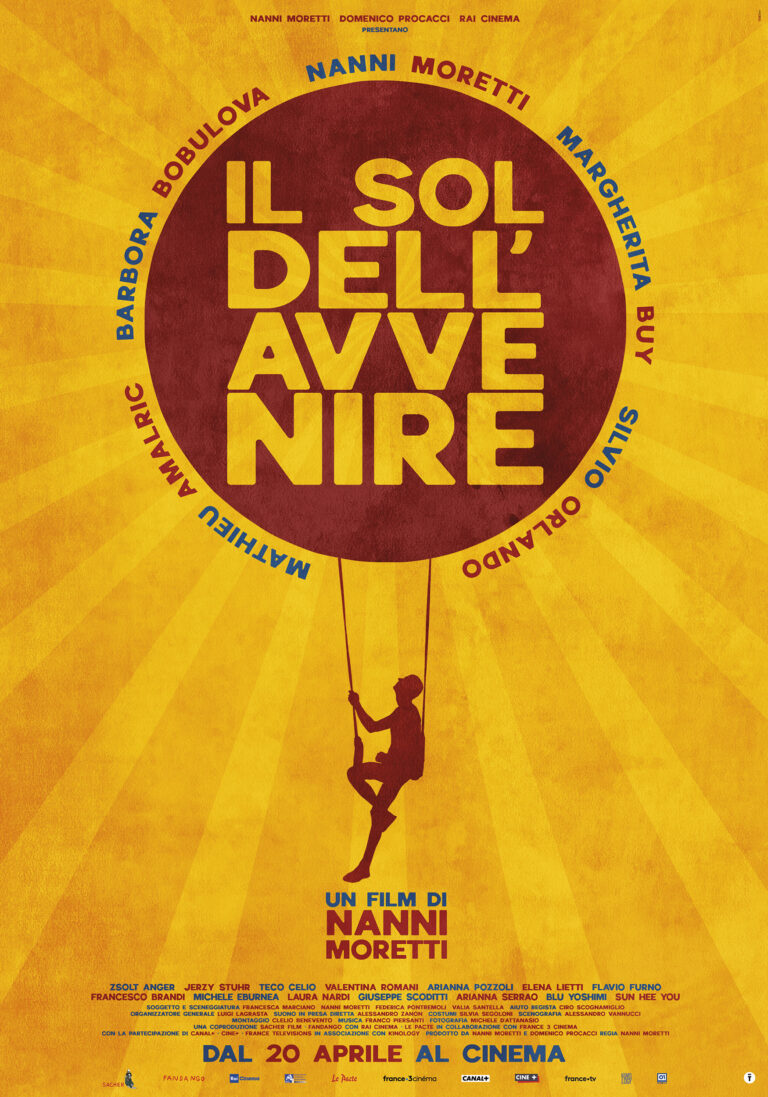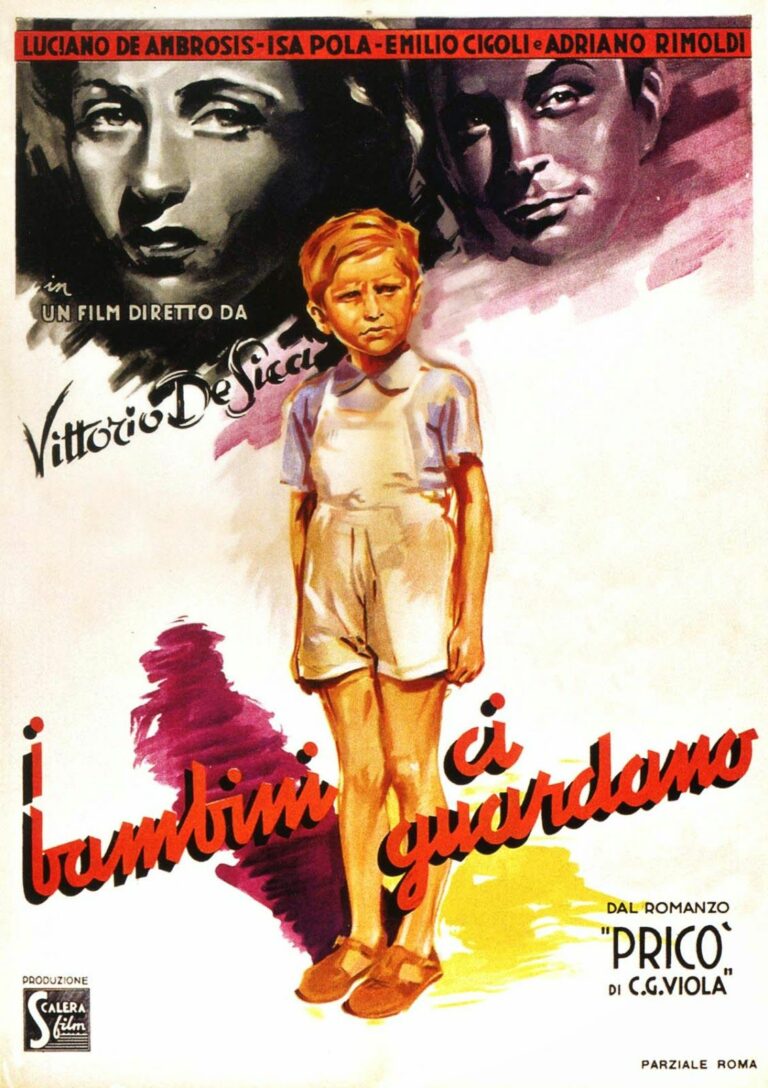
Il Posto (1961), directed by Ermanno Olmi, is a seminal work of Italian cinema that extends the tradition of Italian Neorealism into a new context, reflecting the social changes brought about by Italy’s postwar “economic miracle.” Through the eyes of a young man entering the workforce, the film examines the dehumanizing practices of corporate life and critiques the alienation that accompanies the pursuit of economic stability in a rapidly modernizing society. Shot on location in Milan with a cast of largely non-professional actors, Olmi’s film is both a tender coming-of-age story and a biting satire on the loss of individuality in the face of industrial and bureaucratic conformity.
Plot
The story follows Domenico, a shy adolescent from a working-class family who must abandon his education to help support his parents. He applies for a job at a large corporation in Milan, where he is subjected to a series of surreal and often absurd tests: psychological evaluations, physical fitness exams, and formal interviews. The rigid, impersonal nature of the process underscores the mechanical ways in which corporations assess human potential, reducing individuals to data points.
During a break from the tests, Domenico meets Antonietta, a cheerful and kind-hearted young woman who has also left school to find work. They share coffee at a local café, discussing their modest ambitions and family pressures. A gentle attraction begins to form between them, but their budding connection is interrupted when they are assigned to different roles within the company, symbolizing how the corporate system separates people and stifles personal relationships.
Domenico is disappointed to learn that no clerical positions are immediately available for him. Instead, he is relegated to a menial job as a messenger, a position that feels temporary but gradually starts to erode his individuality. Meanwhile, Antonietta is placed in a typing pool, their paths crossing only occasionally. On one such occasion, she invites Domenico to a party, sparking a flicker of hope in his otherwise monotonous life.
That evening, Domenico arrives at the party alone, nervous yet eager to see Antonietta. She doesn’t show up, and he is left to socialize awkwardly with strangers. An older woman persuades him to dance, and, after a few drinks, Domenico loosens up, enjoying a brief moment of joy and escapism. Yet, even this fleeting reprieve underscores his growing sense of isolation and disillusionment.
The next day, Domenico returns to the office, where he is informed that a “desk job” has finally opened up due to the sudden departure of a senior employee, rumored to have been an aspiring writer who took his own life. Initially, Domenico is assigned the departed employee’s prestigious desk, but his older colleagues protest, complaining about his youth and inexperience. He is quickly moved to a dimly lit corner at the back of the office, a symbolic relegation that mirrors his diminished sense of purpose.
In the final moments of the film, Domenico assumes his position as a “lifer” in the company, trapped in the monotony of a banal career. His expression, both resigned and vacant, reflects the crushing weight of the corporate system that has stripped him of his individuality, dreams, and personal connections. The film ends on this poignant note, encapsulating the quiet despair of a generation forced to choose security over self-fulfillment.
Themes and Style
Olmi’s Il Posto is a deeply empathetic portrait of ordinary lives caught in the machinery of industrial modernity. By using a non-professional cast and shooting on location in Milan, Olmi maintains the authenticity and intimacy of Neorealism, while infusing the film with a poetic sensitivity. The film’s visual language often contrasts the vast, impersonal spaces of the corporate world with the small, vulnerable figure of Domenico, emphasizing his alienation.
The film also critiques the cultural shifts of the postwar economic boom. While the “economic miracle” promised prosperity and stability, Il Posto reveals the human cost: the loss of individuality, the erosion of community, and the empty promises of corporate advancement. The title itself, meaning “The Job” or “The Position,” ironically underscores the futility of Domenico’s journey—he gains security but at the expense of his spirit.
Legacy
Il Posto remains a landmark in Italian cinema, celebrated for its nuanced depiction of working-class struggles and its critique of corporate culture. It is a universal story of youth confronting the compromises of adulthood, making it as relevant today as it was in 1961. With its blend of quiet humor, sharp social commentary, and deep emotional resonance, Olmi’s film continues to be regarded as one of the finest explorations of modern alienation and the human cost of economic progress.






